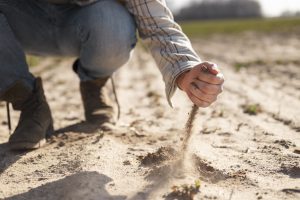Minister responds to declaration of ag disaster
By Rob Vogt
Alberta’s minister of agriculture and irrigation has responded to the Municipal District of Willow Creek’s declaration of an agricultural disaster.
At its Aug. 23 meeting, M.D,. council reviewed a letter from Minister RJ Sigurdson.
“I sympathize with farmers across Alberta who are experiencing the impact of heat, dry weather, wildfires, and more,” he said.
“I can assure you that I am closely monitoring moisture and crop conditions. Agriculture and Irrigation (AGI) officials are in direct communication with farmers and communicate regularly with agricultural organizations, commodity groups, boards, commissions and industry experts to ensure they have up-to-date information about the challengers our producers are facing.
“The Municipal District of Willow Creek’s disaster declaration brings awareness to the developing situation, informs relevant stakeholders, and enables collaboration among impacted producer groups. A declaration of agricultural disaster is an important tool available to municipalities to bring awareness to a developing situation. A declaration informs relevant stakeholders and enables collaboration among impacted producer groups. Although these municipal declarations do not automatically trigger access to increased funding through provincial or federal programs, I am pleased to share that AGI officials have written to their federal counterparts to trigger an AgriRecovery joint assessment.
“I am actively exploring a wide range of potential options to support our producers during this challenging growing season. This includes advocating for the federal government to include regions impacted by drought in the federal Livestock Tax Deferral provision. This provision allows livestock producers to defer a portion of their income to the following year when they are forced to sell a significant portion of their breeding herd due to drought or flooding. For the most up-to-date information about the program I encourage you to visit the Federal Livestock Tax Deferral website regularly.
“As the federal Livestock Tax Deferral provision has yet to be implemented to address drought impacts, it is important producers know that current programs are available to help manage adverse impacts to their farming operations.
“Agriculture Financial Services Corporation (AFSC) offers a comprehensive suite of business risk management programs to producers – including AgriInsurance, AgriStability and AgriInvest. AFSC programs are often the first line of support producers can access when they face disaster. Farmers are encouraged to make use of these programs to protect their farming operations.
“For the 2023 crop year, AFSC’s adjustments to the business risk management programs include doubling the Low Yield Allowance threshold so insured producers can salvage additional cereal or pulse crops for livestock feed. In addition, the AgriStability program has reopened for late participation until Sept. 29, to give producers another option to help manage business risks.
“AFSC can also provide proactive assistance when farmers are affected by drought conditions. On a case-by-case basis, AFSC may provide loan payment deferrals, interest-only payments and loan re-amortizations, depending on individual client needs. To learn more about these programs and how AFSC supports its clients, I encourage you to visit the AFSC website or call 1-877-899-2372.
“AGI also provides information to assist with on-farm business management and production issues during dry conditions and periods of business stress.
“The farming in dry conditions webpage includes agricultural moisture situation updates, and the Alberta climate information service, which provides near real-time meteorological station data and access to a variety of maps.
“To address on-farm water security prior to, during and after dry conditions or drought, two AGI programs are available to support agricultural producers – the Water Pumping Program and Sustainable Canadian Agricultural Partnership Water Program. Producers can access information about these programs by calling 310-FARM and asking to speak to an agricultural water specialist.
“The Alberta government recognizes farming is not just a business – it is a way of life.
“We understand producers are concerned about protecting their operations, livestock and livelihoods and are working hard to ensure that Alberta’s agriculture industry continues to thrive during these challenging times.”

